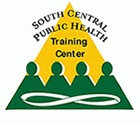
Inescapable Realities in Public Health - Conflict and Collaboration: Building Competency
Course Description:
Have you ever found yourself in a conflict, either professional or personal, with no idea how to get out of it without simply surrendering or fighting back? Just how is it that conflict seems to arise so often? With all the attention that "win-win" approaches get these days, is collaboration always the best way to resolve differences? Is there an element that is common to both collaborating with partners and resolving differences with them?
This broadcast included a discussion of conflict, conflict resolution, and collaboration, and how they are all tightly related. Conflict is all around us, in all aspects of our lives. It seems to be inherent in our culture and perhaps in just being human. While it's easy to create conflict, resolving it often defies our abilities. And yet there are some basic principles one can apply in both preventing conflict and in contributing positively to its resolution once conflict arises. This broadcast provided a very innovative look at conflict, why it arises, and what can be done to resolve it. Also discussed was collaboration, how it represents ONE approach to conflict resolution, and why it is an essential competency in public health practice.
Note: This course was originally delivered as a satellite broadcast.
Target Audience
Academic Faculty/Staff, Federal Government Employees, State Government Employees, Local Government Employees, Non-Government Employees and Students
Learning Objectives
- Describe the common connection between collaboration and conflict resolution
- Describe how acting out of what we know can create conflict or deter collaboration
- Identify multiple communications issues that support collaboration and conflict resolution
- Identify when collaboration is appropriate for use in resolving conflict, and when it is not
- Identify other options for use in resolving conflict and when to use them
- Describe how collaboration is integral to the emerging paradigm for public health practice
Instructors:

Casey Milne
Founder and Principal
Milne and Associates, LLC
Tom Milne
Principal
Milne and Associates, LLC
Available Credit
- 2.00 Participation/CETulane Professional and Continuing Education (PaCE) awards 2.00 hour(s) of credit for completing Inescapable Realities in Public Health - Conflict and Collaboration: Building Competency
Price
Required Hardware/software
System Settings
This course is designed to work most effectively if your computer and internet connection meet certain minimal requirements. This course can be accessed using a Windows 10 PC or a Mac with High Sierra1, Mojave, or Catalina. Pop-up blockers should be disabled when viewing the course. Internet Explorer 11 (for Windows 10), or the current version of Google Chrome, Mozilla Firefox, or Apple Safari (for Windows 10 and or Mac) is required. Many of our courses require Java and JavaScript enabled.
Links to External Websites
Links to websites outside this course will open in a new window or tab. Some browsers may minimize the course window. If this occurs, maximize the course window to return to the course.
Adobe Acrobat Reader (for desktops and laptops)
Adobe Acrobat Reader is required to access some documents in this course. If you need to download a free copy of Acrobat Reader, click here.
Internet Connection Speed
A minimum download speed of 1.5 Mbps is recommended for an optimal experience, which is commonly the speed associated with a basic DSL or a cellular/satellite connection. A faster connection, such as cable or fiber service, with further enhance your online experience. A Wi-Fi connection is generally acceptable, but it is dependent upon one of the two services mentioned above. You can check your internet connection speed at http://www.speedtest.net/.

 Facebook
Facebook Twitter
Twitter LinkedIn
LinkedIn Forward
Forward